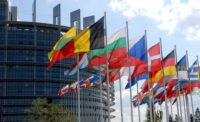 In an effort to improve nanotechnology safety, several European countries are establishing registries to keep track of nanomaterials and the products containing them.
In an effort to improve nanotechnology safety, several European countries are establishing registries to keep track of nanomaterials and the products containing them.
“The idea behind such registries is to help authorities gain access to information that so far cannot be obtained in the current legislative framework,” according to the European Trade Union Institute (ETUI). One example cited by the ETUI: information about the nanoform cannot be easily retrieved from the EU’s REACH regulation, which requires voluntary Registration, Evaluation, Authorisation and Restriction of Chemicals in an effort to control hazardous materials.
Registries may also increase the general public’s trust in nanomaterials.
Belgium, France and Denmark have issued proposals for a mandatory reporting scheme; Italy has framed its proposal under a voluntary reporting and the Netherlands are aiming for a European database.
In France, as a result of the registration procedure in place, by April 30th, 457 companies that produce, import, distribute or formulate nanomaterials had made 1991 declarations. This first result has been deemed “satisfactory” by the government.
“The key principle behind all these initiatives is that consumers, workers and civil society should know exactly what they are buying, using and working with,” says the ETUI. “Nanomaterials should be produced, sold, used and disposed of in a responsible, safe, and sustainable way.”
The organization has produced a Policy Brief that calls for the EU to establish a registry of nanomaterial-containing articles.



